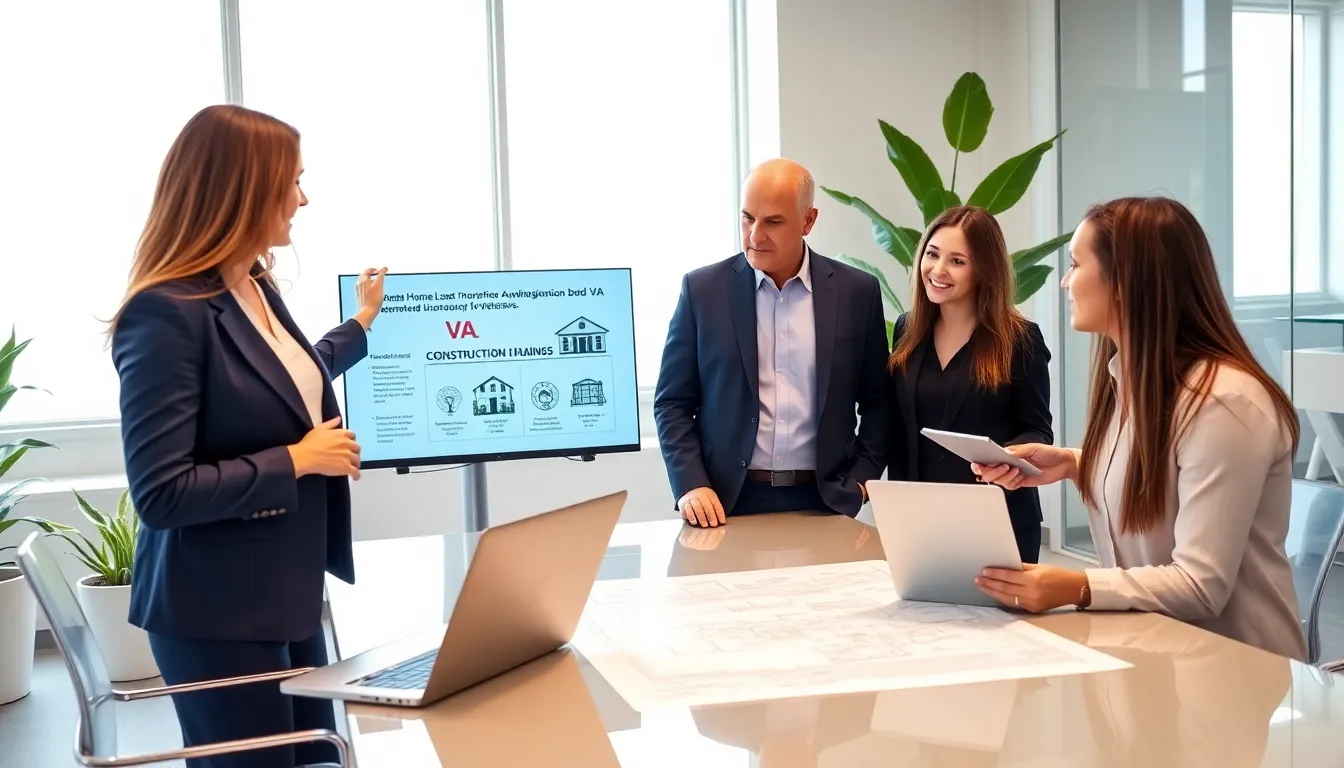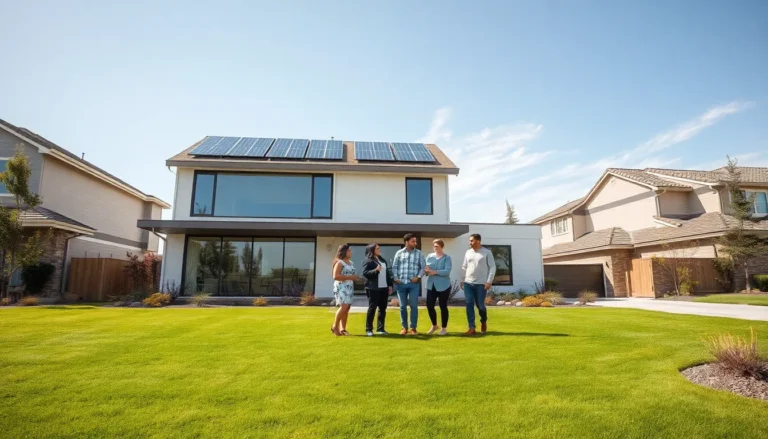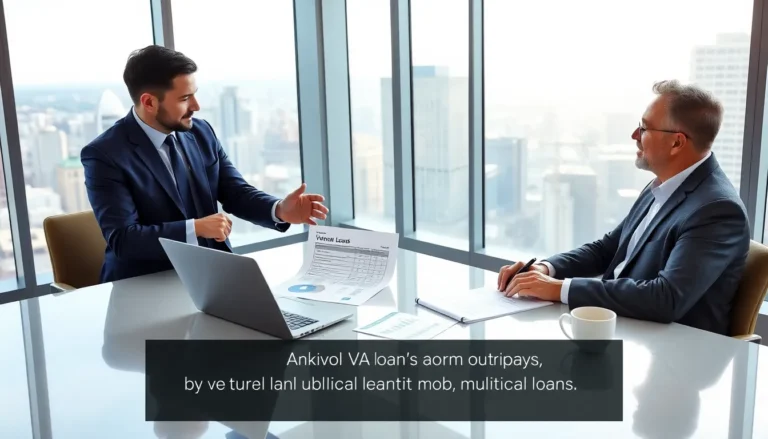Table of Contents
ToggleIf you’ve ever dreamed of building your perfect home while waving a flag of patriotism, you might be wondering, “Does the VA do construction loans?” Well, grab your hard hat, because the answer is a resounding yes. VA construction loans are a fantastic option for veterans and active-duty service members looking to turn their architectural dreams into a reality. This article breaks it all down, from eligibility requirements to application processes, while mixing in a splash of humor and a whole lot of clarity. Who knew construction loans could be so riveting? So, let’s jump into the world of VA construction loans and find out everything you need to know.
Understanding VA Construction Loans

When it comes to home financing, VA construction loans are a breed of their own. They allow eligible veterans and service members to borrow funds not just for purchasing a home, but for building one from scratch. This means that instead of searching endlessly for the perfect property, veterans can create their dream home tailored to their specifications. Imagine ordering exactly what you want, like a customizable sandwich, but instead, you’re building a house.
Unlike traditional mortgages, VA construction loans often come with a significant advantage: no required down payment. This makes it a compelling option for those who qualify.
It’s essential to note that while the VA backs these loans, they aren’t issued directly by the government. Rather, private lenders provide them, which means terms may vary. But, they still carry the guarantee and benefits that come with a VA mortgage, making them a popular choice.
Eligibility Requirements for VA Construction Loans
Before jumping into the world of construction loans, it’s vital to understand the eligibility criteria. To qualify, one must generally be an active-duty service member, a veteran, or a member of the National Guard or Reserves. But eligibility doesn’t stop there.
Here are the main requirements:
- Service Length: Applicants should have served a minimum period, typically 90 days of active service during wartime or 181 days during peacetime.
- Creditworthiness: A good credit score is important, and while there’s no strict cutoff, most lenders prefer a score of at least 620.
- Certificate of Eligibility (COE): Veterans need a COE from the VA, confirming their entitlement to VA loan benefits.
These requirements ensure that only eligible candidates can take advantage of the loan’s benefits, making it a refined option for those who have served.
Types of VA Construction Loans
Veterans looking into construction loans will find a couple of options available:
- VA One-Time Close Construction Loan: This is the most streamlined choice for veterans who want to build their home. It covers both the construction and mortgage in one loan, meaning there’s a single closing process. It’s like killing two birds with one stone, saving time and reducing costs.
- VA Renovation Loan: Though primarily for existing homes, if a veteran is looking to make significant changes or repairs on an existing property, this option makes sense. It allows for repairs that can convert a house into a more suitable home.
Choosing the right type largely depends on the individual’s needs, whether they’re starting from scratch or renovating. Understanding these distinctions can help make informed choices.
The Application Process for VA Construction Loans
The application process for VA construction loans may seem daunting at first glance, but fear not. With a few clear steps, you can navigate it like a pro. Here’s how it typically goes:
- Find a Lender: Look for lenders who deal specifically with VA loans. Not all lenders will provide construction loans, so this step is crucial.
- Get Pre-Approved: This part involves providing documentation about your finances, including income verification, debts, and your COE.
- Submit Your Plans: The next step is to submit your building plans. Lenders will want to see a detailed blueprint of the project.
- Close the Loan: Once approved, there will be a set closing date. At this point, funds may be released to pay for the construction costs in stages or draws.
- Build Your Home: After everything is finalized, contractors can get started on your dream house.
The key takeaway here is that preparation is everything. Have documents in order and keep communication lines open with your lender.
Advantages of VA Construction Loans
VA construction loans come with a myriad of advantages that are hard to ignore:
- No Down Payment: Unlike many other loans, veterans might not need to put anything down, which can save significant upfront costs.
- Lower Interest Rates: VA loans commonly offer competitive rates compared to conventional loans.
- Flexible Credit Requirements: The VA construction loans can be more forgiving on credit scores, making it accessible for more people.
- Funding for Building and Land: These loans can cover both the cost of the land and the building expenses, allowing vets to consolidate their financing.
In a nutshell, VA construction loans can be a huge financial boon, not just for veterans but for anyone looking to build their next home. Veterans aren’t just getting a loan: they’re getting a path to their dream home.
Common Challenges and Considerations
While VA construction loans offer several perks, they’re not without challenges. Here are a few common pitfalls to navigate:
- Finding a Suitable Contractor: Not all contractors are familiar with the VA process, so finding one experienced in handling VA loans can be tricky.
- Length of the Process: Construction loans can be time-consuming compared to traditional loans, with various steps involved that might extend timelines.
- Cost Overruns: Construction often comes with unexpected expenses, and having a financial buffer is crucial to avoid halting projects mid-build.
Considering these challenges, being prepared and researching thoroughly can go a long way toward making the experience smooth and enjoyable.







